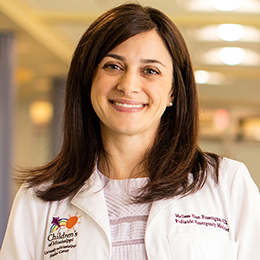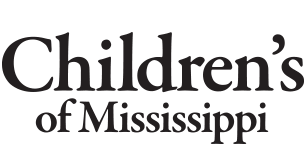
Children's Heart
I Want To
Contact Us
- For appointments by phone: (601) 984-5250
- Make an Appointment
Forever and Ever for Kids with the state's only pediatric heart program.
Backed by the state's only academic medical center and Mississippi's only children's hospital, the pediatric specialists of Children's Heart Center (CHC) offer comprehensive, complex cardiovascular specialty care to pediatric patients of all ages, fetal to adolescent. We have added several providers to our Heart Center faculty and continue to expand the care we provide by growing our outreach services. We now offer pediatric cardiology services in Tupelo and on the Gulf Coast, and have outreach clinics in Iuka, Hattiesburg, Meridian and Pascagoula, including additional fetal echo and adult congenital services.
Located at the Kathy and Joe Sanderson Tower at Children's of Mississippi, we provide pediatric-specific imaging services, operating rooms, our outpatient Children's Heart Center clinic, and a pediatric cardiac intensive care unit. Every detail of our advanced facility has been carefully planned to support family-centered care and to match the skills of our expert faculty and staff. Together, they will allow us to continue providing the quality, patient-focused care that our children deserve.
What We Offer
A state-of-the-art setting equips our team for complex surgical procedures.
The large surgical suites in Sanderson Tower fully support the complex surgeries, such as open-heart procedures and transplants, that our world-class surgical teams offer Mississippi’s kids.
Where to Find UsPlanning Your Visit
We hope to make your visit to Children's of Mississippi as convenient as possible by providing resources that you may find useful when planning your visit.
Mississippi's first pediatric imaging suite is both kid-friendly and convenient.
Inside the pediatric imaging suite in Sanderson Tower, every detail is designed to combine advanced care with the comfort and compassion kids need for a positive experience during imaging services.
Where to Find UsFamily-friendly amenities to make your visit more comfortable.
Visitors to Sanderson Tower will find convenient spaces to eat, pick up last-minute items, rest, and reflect. Garage C, connected to Sanderson Tower by a covered walkway, offers the closest parking. It is easily accessed from Woodrow Wilson.
-
Coffee Shop
Coffee shop (Sanderson Tower, Level G) is open daily with beverages, grab-and-go foods, and hot sandwiches. -
Gift Shop
Children’s of Mississippi Gift Shop (Sanderson Tower, Level G) offers merchandise specially selected for pediatric patients and their parents, including stuffed animals, toys, snacks, and drinks. -
Interfaith Chapel
The interfaith chapel (Sanderson Tower, Level G) is open 24 hours a day for quiet, meditation, and prayer. -
Family Lounges
Many units feature lounges with refrigerators and washer dryers, where families of patients admitted to Children's of Mississippi can eat, relax, and do laundry.
Family-centered care focuses on critically ill children.
Inside the Sanderson Tower, the PICU’s private rooms are complemented by a Family Room equipped with amenities that make it easier for families during an extended stay.
Critical Care Locations
Meet Our Specialists

At Children’s of Mississippi, our pediatric experts work together to complete a full circle of care for your child.
Children's CardiologyChildren's Cardiac SurgeryChildren's Congenital Heart Surgery


 UMMC
UMMC